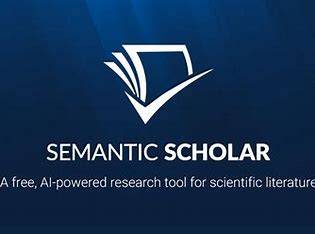CHATBOT AS A TOOL TO PROMOTE MENTAL HEALTH SELF-CARE FOR FRONTLINE HEALTH PROFESSIONALS DURING THE COVID-19 PANDEMIC: SCOPING REVIEW PROTOCOL
DOI:
https://doi.org/10.47820/recima21.v3i11.2119Keywords:
Mental health; Chatbot; Health professionals; Pandemic; self care.Abstract
Objective: This paper aims to develop a scoping review to analyze how the chatbot can assist in promoting self-care in metal health for health professionals who work with the direct care of patients with COVID-19 throughout the pandemic. Review Method: The research methodology will be based on evidence-based practice (EBP) studies and the principles of the scoping review protocol through its construction phases, as guided by the Joanna Briggs Institute (JBI) Manual, using the search strategy with the criteria P(population) = Health Professionals, C(concept) = knowledge production in mental health through the use of chatbot and C(context) = pandemic. The search will be conducted through the databases of the Virtual Health Library (VHL), PUBMED and Grey Literature source - Google Scholar, Manuals of the Ministry of Health and World Health Organization, being selected according to pre-defined inclusion and exclusion criteria. Results: these will be presented based on Bardin's structural analysis proposal, which highlights the extracted information, classifying it into conceptual categories, according to the unfolding of critical discussions based on the findings and the verification performed by the reviewers.
Downloads
References
ARAÚJO, W. C. O. Recuperação da informação em saúde: construção, modelos e estratégias. Conv, Ciênc. Inform., v.3, n.2, p100-134, mai-ago, 2020.
BARDIN, L. Análise de conteúdo. São Paulo: Edições 70, 2011.
BORGES, Lauren M. et al. A longitudinal analysis of the role of potentially morally injurious events on COVID- 19-related psychosocial functioning among healthcare providers. PLoS ONE, [S. l.], v. 16, p. e0260033, 12 nov. 2021. DOI 10.1371/journal.pone.0260033. Disponível em: http://dx.doi.org/10.1371/journal.pone.0260033. Acesso em: 10 jun. 2022.
BOTELHO, R.G.; OLIVEIRA, C. C. Literaturas branca e cinzenta: uma revisão conceitual. Ci.Inf, Brasília.v.44, n.3, p. 501-513, set-dez 2017.
CORDEIRO, Luciana et. al . "Revisão de escopo: potencialidades para a síntese de metodologias utilizadas em pesquisa primária qualitativa." BIS. Boletim do Instituto de Saúde 20.2 (2019): 37-43.
DOSOVITSKY, Gilly; BUNGE, Eduardo L. Bonding With Bot: User Feedback on a Chatbot for Social Isolation. Frontiers in Digital Health, [S. l.], v. 3, p. 1-11, 5 out. 2021. DOI doi.org/10.3389/fdgth.2021.73505. Disponível em: https://www.frontiersin.org/articles/10.3389/fdgth.2021.735053/full. Acesso em: 8 ago. 2022.
FERREIRA, S. M. R.; RETONDARIO, A. TANIKAWA, L. Protocolo de revisão de escopo e revisão sistemática na área de alimentos. Visão Acadêmica, Curitiba, v.22, n.2, Abr-Jun 2021.
GABRIELLI, Silvia et al. Engajamento e eficácia de uma intervenção de enfrentamento saudável via chatbot para estudantes universitários durante a pandemia de COVID-19: estudo de prova de conceito de métodos mistos. JMIR mHealth e uHealth, [S. l.], v. 9, p. e27965, 28 maio 2021. DOI 10.2196/27965. Disponível em: https://mhealth.jmir.org/2021/5/e27965. Acesso em: 10 jun. 2022.
JBI. The Joanna Briggs Institute. JBI for evidence synthesis. Adelaide, JBI, 2021.
HULKOWER, Adira. Learning from Covid. The Hastings Center report, [S. l.], v. 50, p. 16-17, 29 jun. 2020. DOI 10.1002/hast.1124. Disponível em: https://onlinelibrary.wiley.com/doi/10.1002/hast.1124. Acesso em: 1 ago. 2022.
KORKMAZ, Sevda et al. The anxiety levels, quality of sleep and life and problem-solving skills in healthcare workers employed in COVID-19 services. Journal of clinical neuroscience : official journal of the Neurosurgical Society of Australasia, [S. l.], v. 80, p. 131-136, 30 jul. 2020. DOI 10.1016/j.jocn.2020.07.073. Disponível em: https://doi.org/10.1016/j.jocn.2020.07.073. Acesso em: 1 jun. 2022.
VILAZA, Giovanna Nunes; MCCASHIN, Darragh. Is the Automation of Digital Mental Health Ethical? Applying an Ethical Framework to Chatbots for Cognitive Behaviour Therapy. Frontiers in Digital Health, [S. l.], v. 3, p. 1-6, 6 ago. 2021. DOI 10.3389/fdgth.2021.689736. Disponível em: https://www.frontiersin.org/articles/10.3389/fdgth.2021.689736/full. Acesso em: 10 jun. 2022.
TUNDO, Antonio; BETRO, Sophia; NECCI, Roberta. What Is the Impact of COVID-19 Pandemic on Patients with Pre-Existing Mood or Anxiety Disorder? An Observational Prospective Study. Medicina, [S. l.], v. 57, n. 4, p. 304, 24 mar. 2021. DOI 10.3390/medicina57040304. Disponível em: https://www.mdpi.com/1648-9144/57/4/304. Acesso em: 1 ago. 2022
TRICCO, A. C. et al. PRISMA Extension for Scoping Reviews (PRISMA-ScR): Checklist and Explanation. Annals of Internal Medicine, Philadelphia, v.4;169(7):467–73. Disponível em <https://www.acpjournals.org/doi/10.7326/M18-0850> Acesso em: 21 de abril de 2022.
XIAOMING, Xu et al. The psychological status of 8817 hospital workers during COVID-19 Epidemic: A cross-sectional study in Chongqing. Journal of Affective Disorders, [S. l.], v. 276, p. 555-561, 19 jul. 2020. DOI 10.1016/j.jad.2020.07.092. Disponível em: https://doi.org/10.1016/j.jad.2020.07.092. Acesso em: 1 jun. 2022.
Downloads
Published
How to Cite
Issue
Section
Categories
License
Copyright (c) 2022 RECIMA21 - Revista Científica Multidisciplinar - ISSN 2675-6218

This work is licensed under a Creative Commons Attribution 4.0 International License.
Os direitos autorais dos artigos/resenhas/TCCs publicados pertecem à revista RECIMA21, e seguem o padrão Creative Commons (CC BY 4.0), permitindo a cópia ou reprodução, desde que cite a fonte e respeite os direitos dos autores e contenham menção aos mesmos nos créditos. Toda e qualquer obra publicada na revista, seu conteúdo é de responsabilidade dos autores, cabendo a RECIMA21 apenas ser o veículo de divulgação, seguindo os padrões nacionais e internacionais de publicação.

 Clique para ver detalhes
Clique para ver detalhes 











